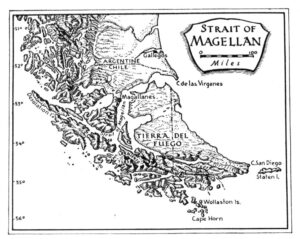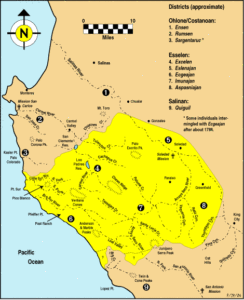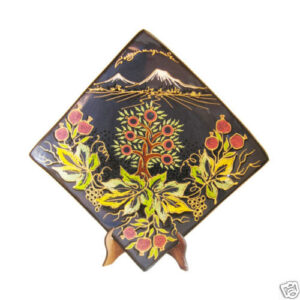
Ahab found his madness
pulling ‘round Cape Horn,
Bound down before his sirens—
howling Odysseus,
There where the seas broke through
Hyper-extended America, twin
imperialists
Who’d fain stretch themselves thin
as Panama,
Pole to pole to barricade Magellanic
man.
But Patagonia stretched too thin, and the waters
broke the Andean spine,
and the cold blood poured through, pushed
vertebrae out before it,
Warped Patagonia, Antarctica inward
like pincer-horns—a narrow funnel
For all the polar seas
And the southern gales to ride through;
Storms sliding down the Andes,
And beneath the wave crests:
prowling icebergs,
creeping coastal shallows.
Plenty bad with the Roaring Forties,
Furious Fifties riding your back,
But a watery hell with them whistling
‘twixt your nostrils and teeth;
Twice dismasted the Garthwray
Before she finally turned about, sailed
‘round the world to reach Chile
from Argentina;
And Magellan and Drake snuck through,
lost half their ships,
But the Spanish, for their part, preferred
To cross the land and build new fleets
Than rip hull and sail
on the Horn.
© 2014–15 Kaweah


